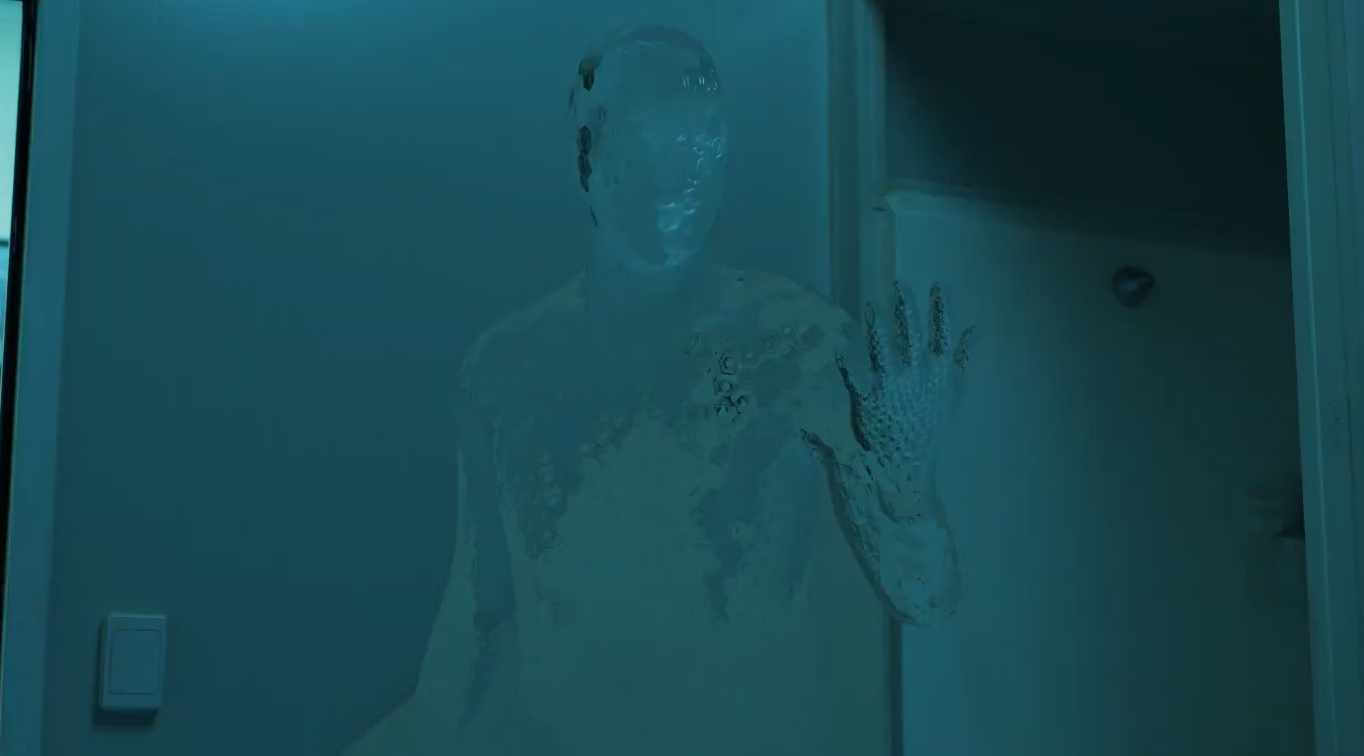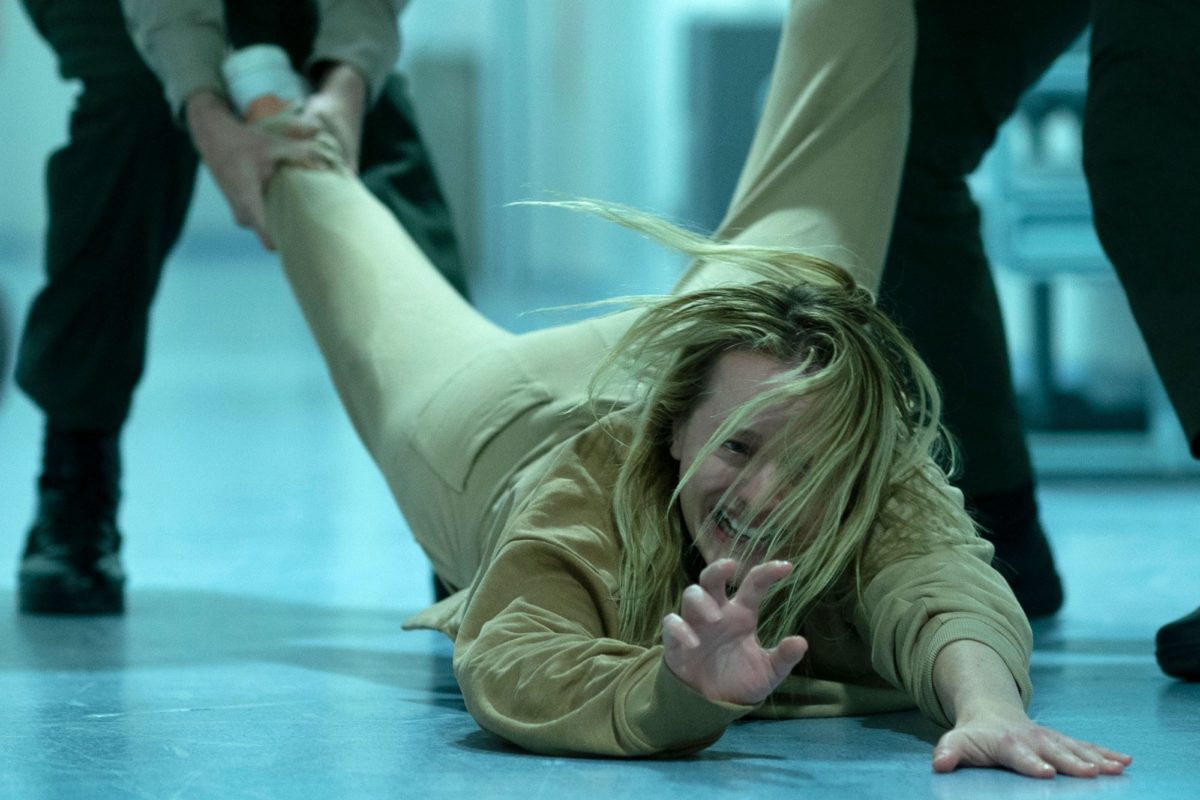Anything called The Invisible Man would have been a very different story (both behind and in front of the camera) had the Dark Universe series not been a bust thanks to the irascible reception to Tom Cruise’s The Mummy outing.
In fact back when it was being touted, Johnny Depp was slated to appear as the classic 1930s mad scientist who discovers invisibility and (presumably) goes mad in the process (if it had all worked out, Javier Bardem would have been Frankenstein’s monster).
The pairing of Blumhouses’ cheap, artisanal approach and Leigh Whannell’s chops as a horror writer (and newly minted horror director) must have seemed like as sure a bet as Universal could take, rolling the dice on standalone, filmmaker-driven movies and seeing what shakes out instead of trying to drive a producer-led universe of connected films.
And for the most part, they couldn’t have made a better bet. Whannell talked to the media about wanting to make the audience uncomfortable and he’s done exactly that. He constructs long, slow sequences of nerve sawing tension and is smart enough not to end every one with a jump scare, making The Invisible Man a very nuanced kind of horror.
And however much that was his intent from the beginning, it perfectly suits the situation hero Cecelia (Elizabeth Moss) finds herself in when we meet her. She wakes up in her stark, beautiful, gigantic house with her husband sleeping beside her, and even if you don’t know about the theme, the way she sneaks out of bed, tiptoes around the avant garde mansion and packs a bag in wide-eyed terror makes you understand straight away that she’s the prisoner of an abuser.
Cecelia makes the break and finds her way into hiding at the house of her cop friend James and his cute teenage daughter Sydney. As weeks pass she gradually finds herself coming to life again thanks to the support and encouragement by her sister Annie, James and Sydney. When news explodes that Adrian, her tech billionaire husband, has committed suicide following her escape, it seems to put the matter to rest and Cecelia can finally breathe, truly free of him.
But what we don’t know at that stage is that Adrian was experimenting with optics, and has perfected a skin tight suit that repels all reflective light, rendering the wearer invisible. And instead of changing the world with it, he decides to stalk and terrorise his wife.

It starts innocently (though still scarily). Cecelia is certain there’s someone sitting in the chair across the room, the breakfast she’s cooking mysteriously catches alight when the stove is turned up too high, etc.
But in true horror movie protagonist fashion, it’s all fodder to make Elizabeth seem crazy or at worst, dangerous herself, like when Sydney is violently slapped and Cecelia is (apparently) the only other one in the room. And a truly stunning moment comes when Cecelia is sitting down to dinner in a fancy restaurant with Annie, attempting to make peace after what the emotional fallout has done to them.
It’s the last place you expect something horrible to happen but when Annie looks, amazed, over Cecelia’s shoulder and the latter turns to see a knife floating in midair, what ensues is the biggest jaw-drop moment in the movie. As the high concept hook has it, how can you fight an enemy you can’t see, especially when you can’t convince anyone else he’s even there?

The ratcheting up of the danger and tension is unrelenting and expertly handled… up to a point. To a certain extent we’re kept as much in the dark about what Adrian’s capable of as Cecelia is, but when she realises what’s going on and figures out what to do about it, the tone shifts to be more of an action chase thriller.
And even though his script does its best to pull the rug out of you one more time, Whannell suffers a little from Lord of the Rings syndrome, tacking on a kind of redundant climax involving mistaken identity.
The whole thing is like a train that’s been gradually accelerating to scary speeds, the vibrations coming up under your seat ever-stronger until they’re nearly unbearable, but eventually getting too fast and the wheels coming off a bit.
None of which detracts from Whannell’s skill as a director. He’s not scared to invent and wrangle a very particular style of camerawork, making it almost a character in itself, and he proves here beyond doubt he can do horror movie tension. With a little more economy in the scripting stage, he might just make a cool little masterpiece.
Subscribe to FIB’s Weekly Alchemy Report for your weekly dose of music, fashion and pop culture news!







